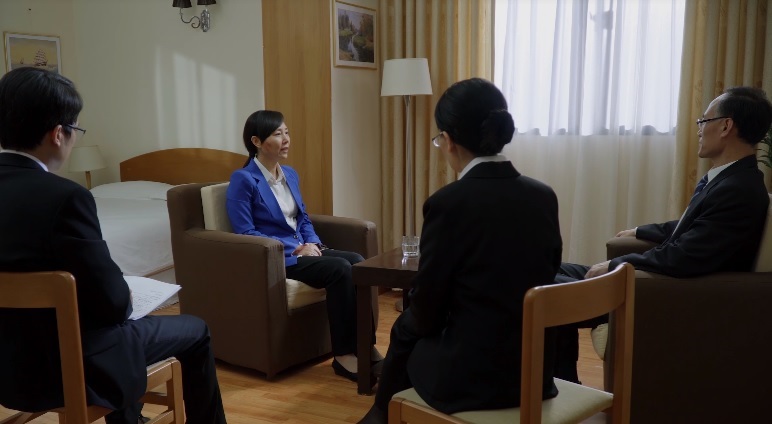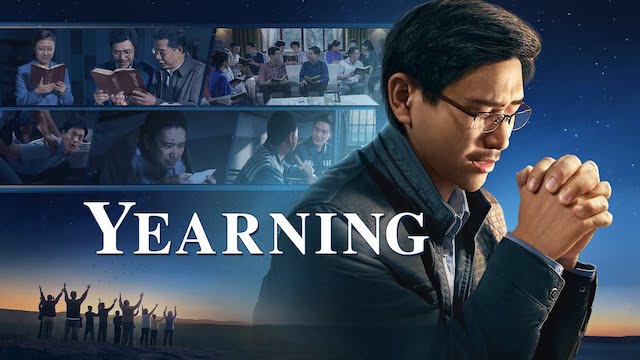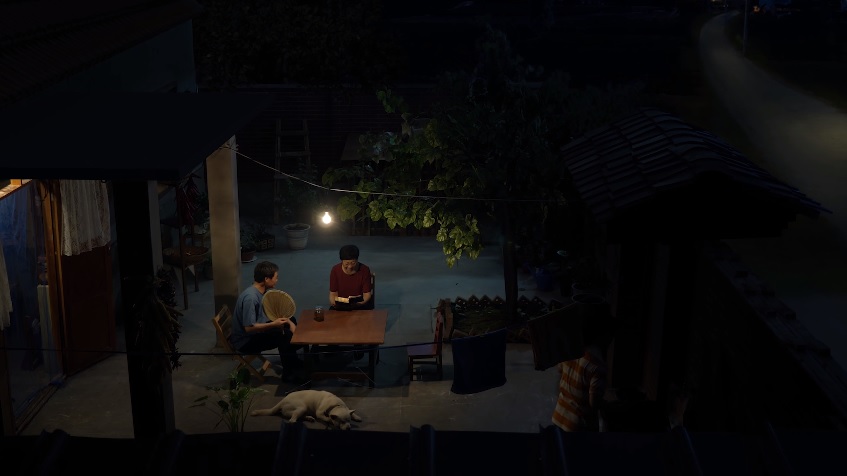Movie Reviews—Finding a Harbor for the Soul: Understand the Moving Film Where Is My Home in 6 Minutes
Hello everyone! Thank you for tuning into this episode of Film Reviews. Today I’d like to recommend a Christian film to you—Where Is My Home. This film was adapted from a Christian’s real-life experiences; this moving story is full of twists and turns and profoundly meaningful.
The director related this story by combining an overt storyline with a covert storyline, delving into a deeper understanding of “home.” In the overt storyline, tragedy befalls the protagonist Wenya—her parents divorce when she’s two years old and establish separate households. She lives with her father, but her stepmother refuses to tolerate her. Her mother is constantly busy with her own business and has no time to look after her. Little Wenya is constantly bounced around between her father, her mother, and the homes of friends and relatives. After growing up, she and her father come to rely heavily upon each other, but she is faced with one misfortune after another. Just when her college entrance exams are right around the corner, her mother has a stroke, and her father has late-stage liver cancer; she has no choice but to enlist the help of friends and relatives, but they all drift away, one after another. Wenya falls into very difficult circumstances …
Wenya’s paintings serve as important props in the film. They appear a number of times from beginning to end as an emotional expression, reflecting the process of change she undergoes deep in her heart and furthering the development of the plot. At first her paintings show the four-person family living together happily, but later she and her father appear on one piece of paper while her mother and sister appear on another. The happy family was split into two. When Wenya asks her sister in her childlike way, “Why do all the other kids only have one home, but we have two?” her sister places the two pieces of paper together and says, “Here, now we’re all together.” The two children’s innocent dialogue is starkly contrasted with the cruelty of reality, inspiring love and affection for Wenya in audience’s hearts. And providing more food for thought: As modern society continues to focus on money more and more, affections between relatives and friends become more indifferent, and social phenomena such as left-behind children and old empty-nesters become more serious. What do these things really mean for humanity?
The covert storyline in the film begins to unfold with the stories of Wenya’s parents. Wenya’s mother manages a restaurant and is very well-regarded by others. However, she is betrayed by her second husband, loses the hard-earned family property, and nearly loses her very life. In the hospital, she sits alone in her wheelchair, gazing into the distance, in a daze and helpless. You can’t help but let out a sigh.
Even though her father is an excellent teacher, acclaim, status, and money all seem like nothing when faced with death. What Wenya and her parents go through are a microcosm of many people in modern society, striking a common chord. Even though people enjoy wonderful lives in the material sense, our souls are empty and thirsty, and we have nothing to lean on. Being clothed and fed cannot replace happiness; a house can provide us cover from the wind and rain, but it is not a home. When we lament over the state of the world and morality on the decline, we can’t help but wonder: Why is life so full of suffering? Where can a true home be found?

Where mankind ends, God begins. Two of Wenya’s mother’s friends arrive, breathing life into their bleak home, and the gospel that came from God particularly shines a ray of life on the family. They discuss the question “Why is life so full of suffering?” which provokes deep reflection in many people. In addition, the words of God read by Zheng Xinming and the other friend not only resolve the feeling of bewilderment deep in Wenya’s heart, but also allow her mother to see to the heart of worldly affairs and gain renewed hope for life. They also bring her sister a ray of hope. I believe this will resonate with many of you. If everyone were able to live according to these words, perhaps this society would not be so dark, so evil, and perhaps there wouldn’t be so much suffering in our lives.
This film thoroughly explains the reason behind all the suffering in human life and it points out the path for casting it off. This is where its greatest value lies. Even with a wealthy family, with fame and status, anyone who departs from God will be a spiritual orphan and will be unable to enjoy peace or joy in their soul. They will only be toyed with and afflicted by Satan. When we have no one and nowhere to turn to, only God remains by our side, quietly waiting. Only God can save us from Satan’s harm—He is the truest support for all people.
As the film concludes the director displays a number of clips from Wenya’s life in the house of God accompanied by a beautiful, melodic musical theme. This shows people how full of peace and joy a life of faith in God is. Relationships are built on the foundation of God’s love, and even when doing the most mundane things, everyone’s faces are brimming with ease, freeness, and happiness. These beautiful scenes evoke yearning and communicate an important message: A materialistic household can fall apart at any time, but an eternal home can only be found with God. This is the house of God. This is the harbor where our souls can rest—it is where we truly belong! After seeking for so long, Wenya finally found it.
After seeing Wenya’s story, I am confident that anyone with a heart and a soul will experience God’s love and salvation through it. Perhaps you’ve had an experience similar to Wenya’s, or perhaps you are in the midst of it now, longing for a place for your soul to belong, and to gain God’s mercy. Prepare yourself—we’re going home!
Thank you for watching this episode of Film Reviews. See you next time!





